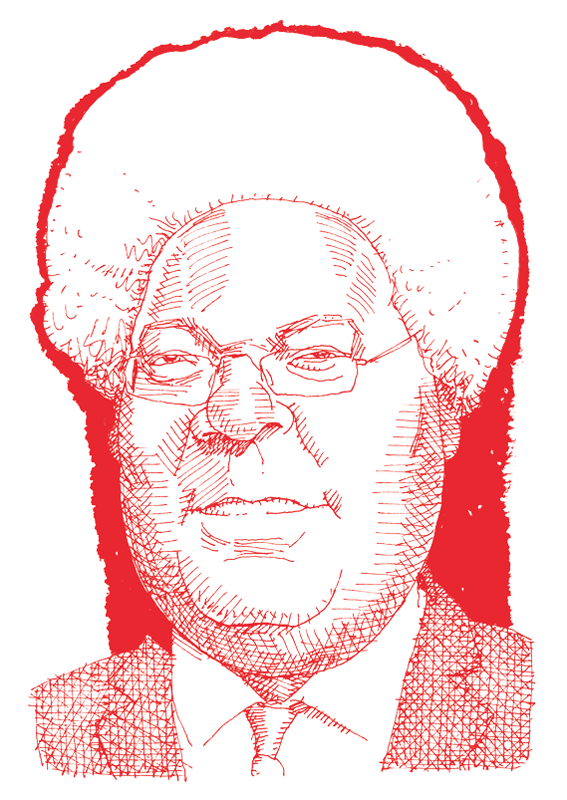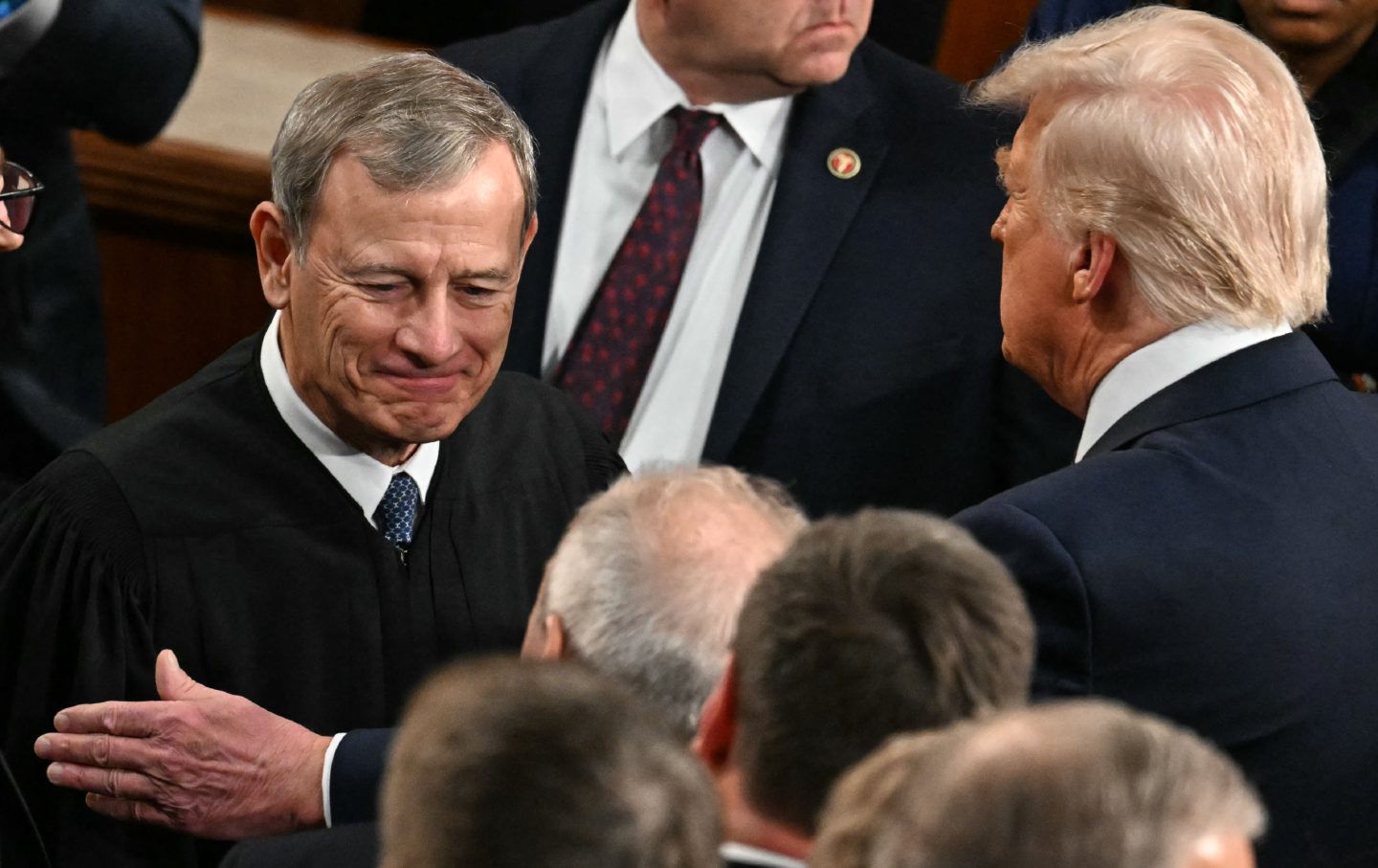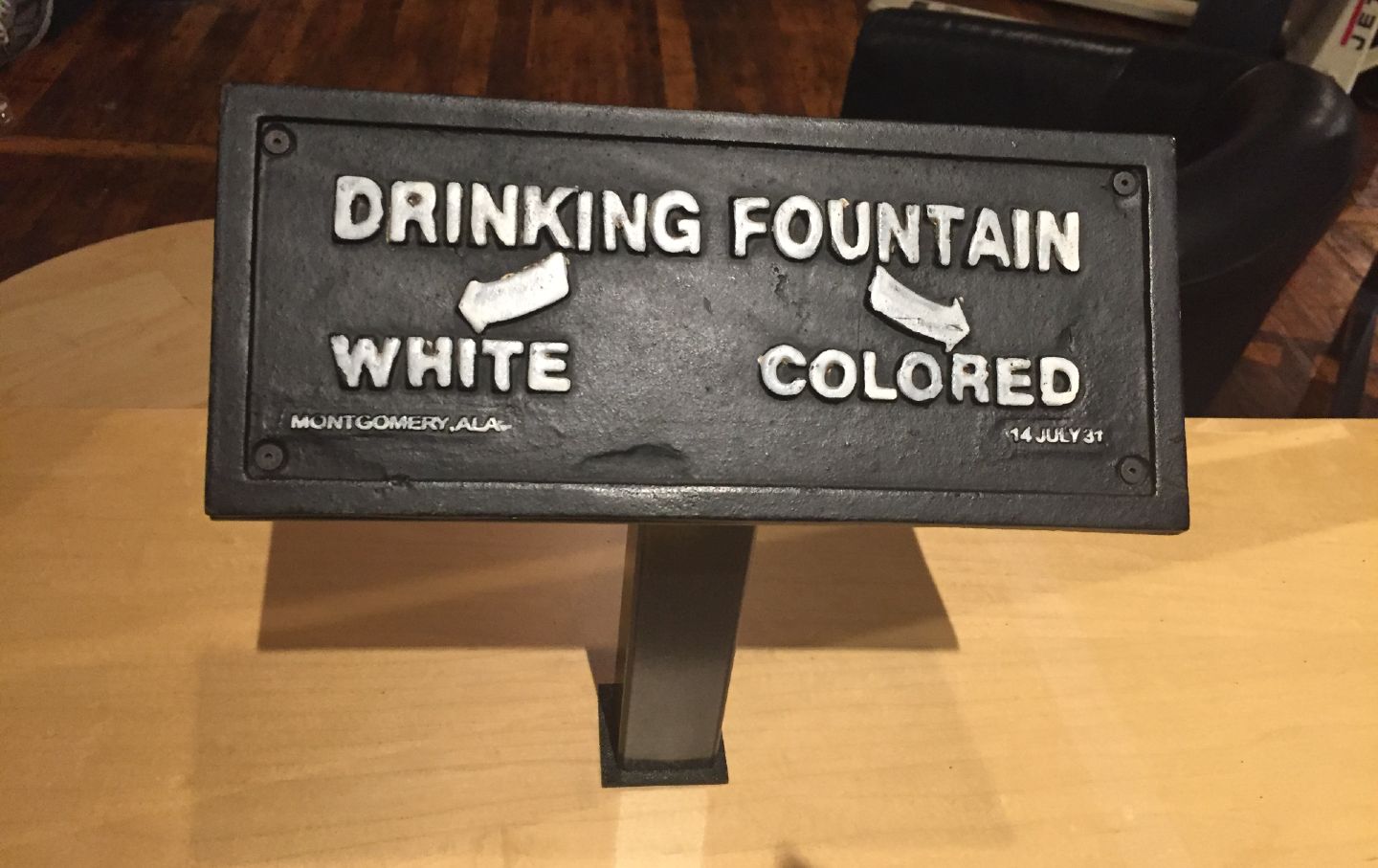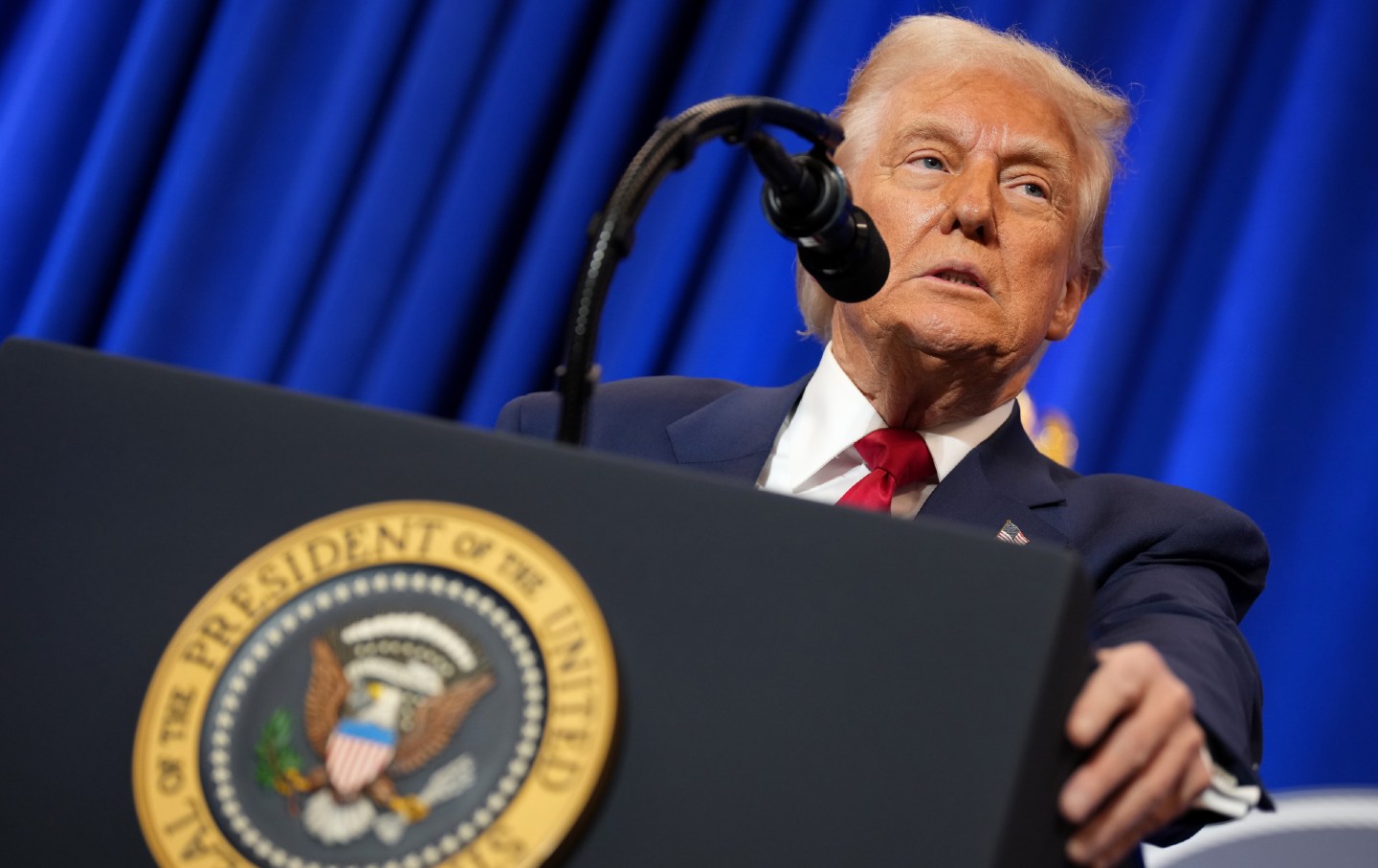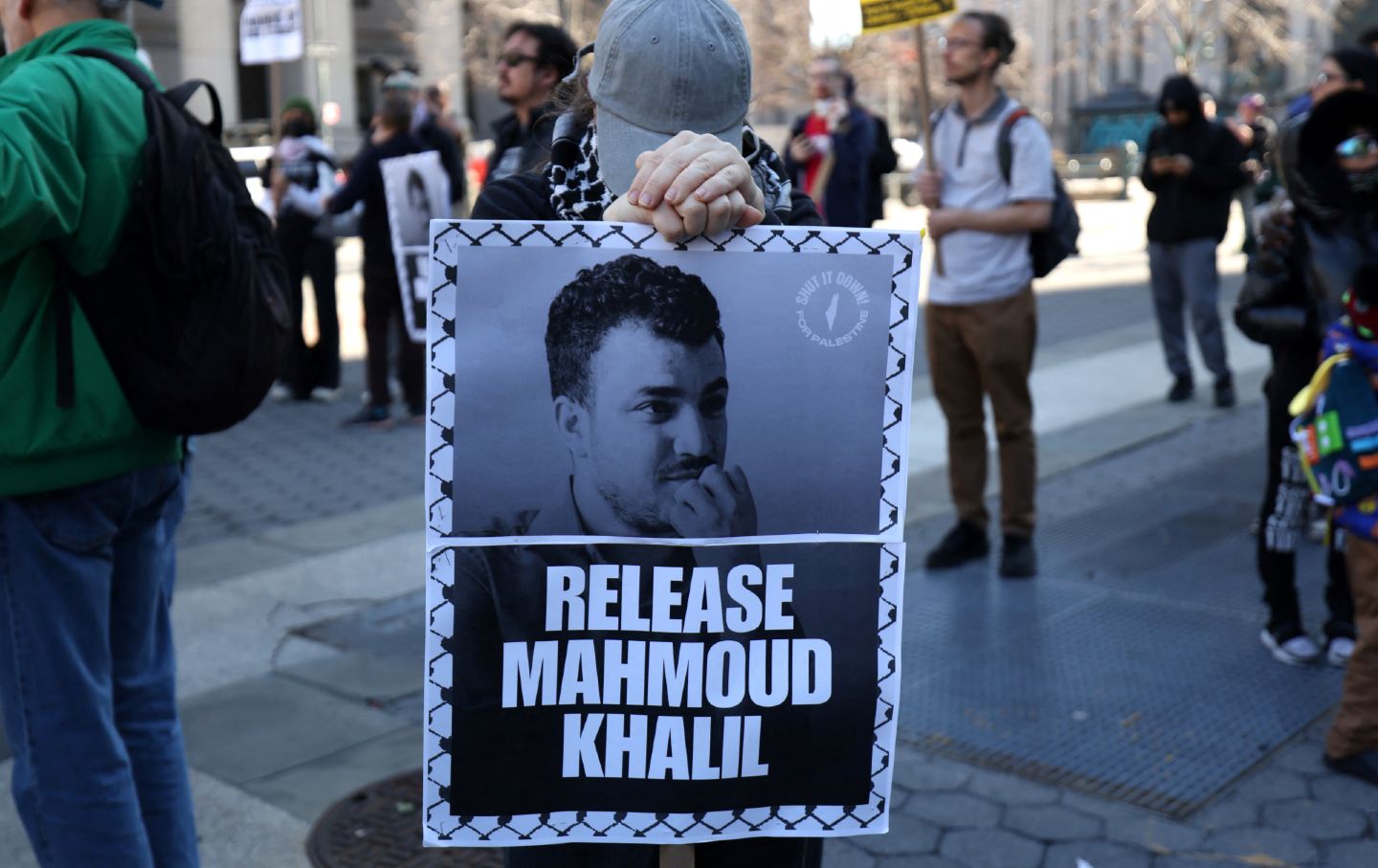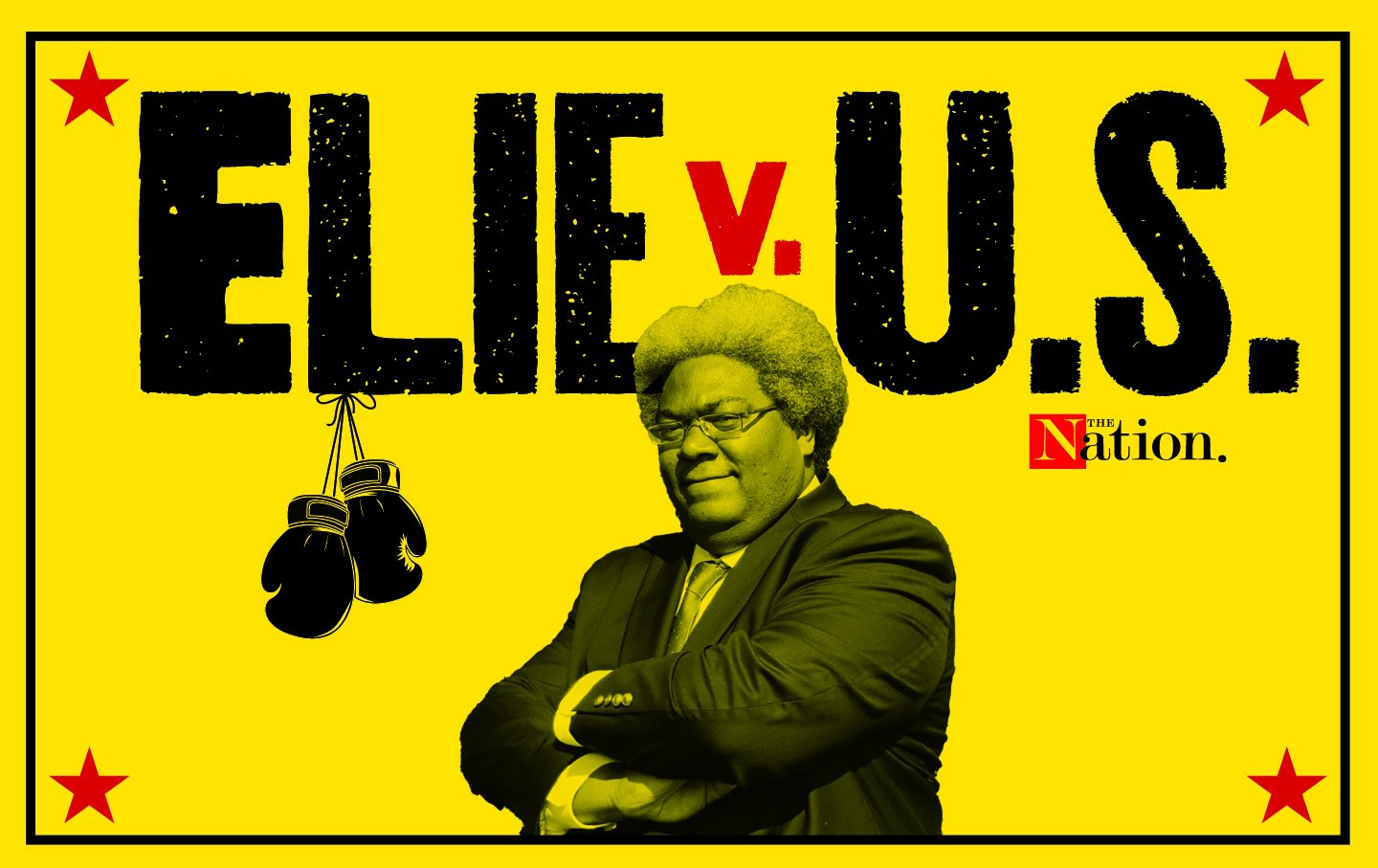The Future of the Voting Rights Act Depends on… Brett Kavanaugh
A new effort by Alabama to gut the VRA was clearly inspired by a recent Kavanaugh opinion. Now the state is appealing to the Supreme Court—and Kavanaugh—to help seal the deal.
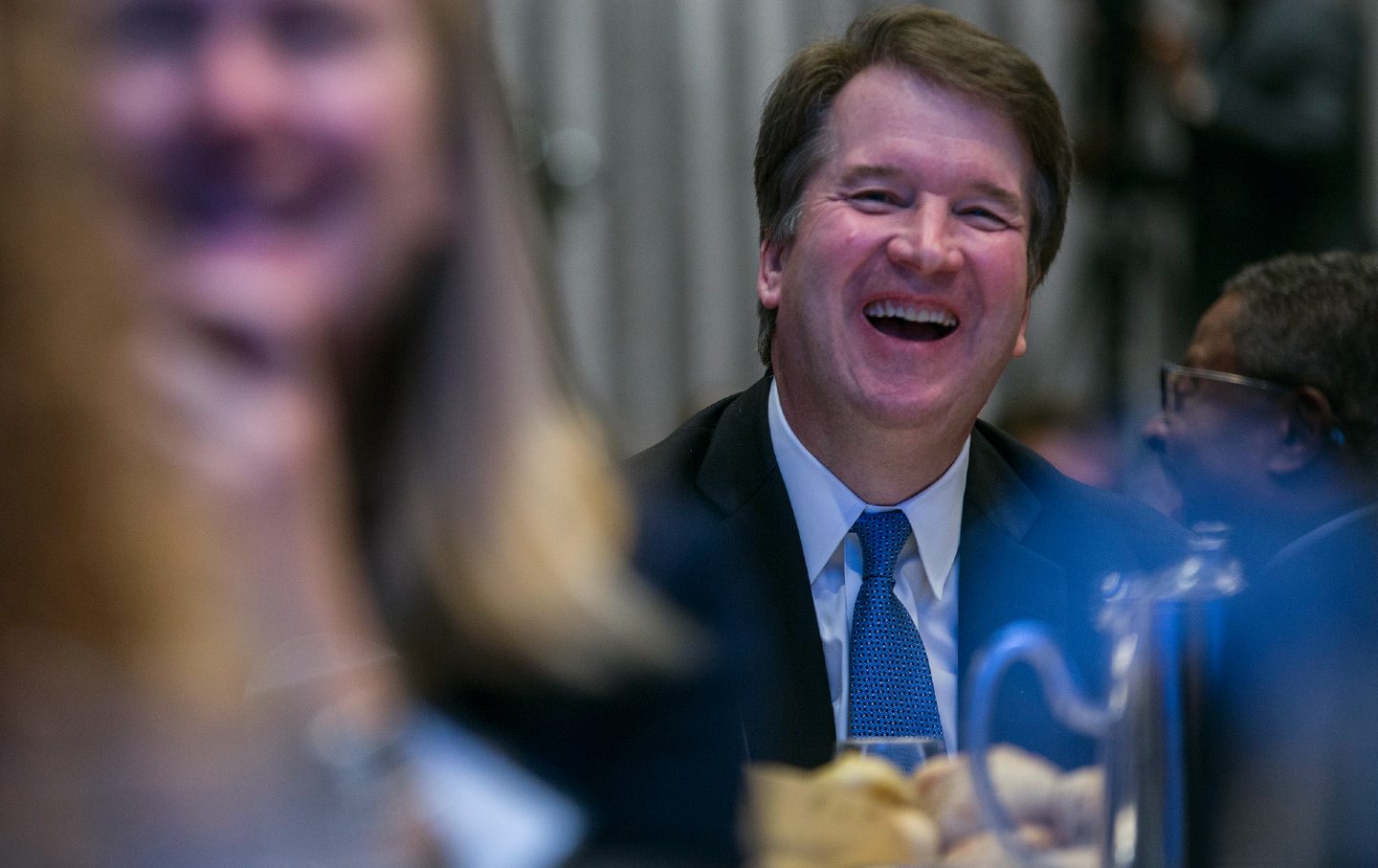
I regret to inform you that the future of the Voting Rights Act, and the immediate question of whether Southern states can gerrymander away the political power of Black citizens, now rests squarely on the shoulders of alleged attempted rapist Brett Kavanaugh. That’s because the state of Alabama’s latest attempt to defy the 15th Amendment, and the Supreme Court’s own rulings, is inspired by a decision Kavanaugh wrote that explicitly asked for plaintiffs to file a case that could help him kill the VRA once and for all.
At issue are Alabama’s congressional district maps which are, once again, racist. Alabama is about 26 percent Black. That makes it the fifth-“Blackest” state as measured by percentage of population. The state has seven congressional seats, which suggests that two of the seven seats (28 percent) should be majority-Black, but the state legislature redrew its congressional maps after the 2020 Census and produced only one majority-Black district. It did this by “cracking and packing” the Black people in the state—that is, by throwing as many Black residents as it could into one district, and then splitting up the rest so their voices would be drowned out in majority-white districts.
In 2021, a federal court ruled that Alabama’s maps constituted an unconstitutional racial gerrymander, but, after an emergency appeal to the Supreme Court, five of the conservative justices allowed the state to use those maps pending a full hearing by the court. Kavanaugh explained his vote by claiming that, by time the case got to SCOTUS (in February of 2022), it would already be too close to the midterm elections (in November of 2022) for the courts to do anything about it. One racist election cycle later, the Supreme Court ruled (in June 2023) that Alabama’s maps were an unconstitutional racial gerrymander in violation of Section 2 of the VRA, and ordered the state to redraw its maps.
The decision overturning Alabama’s maps was 5-4. Chief Justice John Roberts joined the three liberals against Alabama, marking the first time Roberts has ruled in favor of the Voting Rights Act in his time on the Supreme Court. The fifth vote was Kavanaugh’s. Kavanaugh joined the majority opinion, but wrote separately to shop for a different case. He said that he would entertain an argument that Section 2 of the VRA should not be extended “indefinitely into the future,” essentially arguing that racism has been defeated and thus the VRA is no longer necessary. He said, however, that the people defending Alabam’s maps didn’t make that argument, so there was nothing he could do.
His concurrence had all of the subtlety of a king pining for the assassination of Thomas Becket… or Mike Pence. At the time, I wrote that Kavanaugh will one day use just such a case to declare victory over racism, it’s just a question of when.
The Republicans of Alabama have taken Kavanaugh’s opinion as an invitation to openly defy the Supreme Court’s order. Alabama technically redrew its maps, but didn’t make a second majority-minority district, or anything close to it. Instead, it took one district that was 30 percent Black and made it 40 percent Black and called it a day. The state is not even pretending to heed the Supreme Court’s ruling. Alabama Governor Kay Ivey, who signed the “new” maps into law, said: “The Legislature knows our state, our people and our districts better than the federal courts or activist groups.” I’m sure if Alabama could figure out a way to draw a majority-white district in the shape of a middle finger, it would.
Alabama’s new maps were ruled unconstitutional this September by a federal district court, this time in a scathing 217-page unanimous decision that called out the state for its open defiance of a Supreme Court order. The district court appointed a special master to redraw the maps for Alabama, since the state legislature seems unwilling to comply with the law. Predictably, Alabama has appealed the ruling to the Supreme Court, which has not decided (as of this writing) on whether to hear the case.
If the court does hear the appeal (and, to be clear, the court should not; it should simply let the ruling of the lower court stand instead of rewarding Alabama’s petulance with another hearing), I’m not worried about John Roberts changing his vote. Famous last words, I know, but I have evidence for this. In 2016, the Supreme Court struck down a Texas law that severely limited access to abortions (back in the before times when pregnant people had constitutional rights). Roberts, a forced-birth advocate, dissented from that opinion. Fast forward to 2020, and Louisiana was in front of the Supreme Court with essentially the same law the court struck down in 2016. All that had changed was that Anthony Kennedy, who was in the majority in 2016, had been replaced by Kavanaugh. Kavanaugh did as expected and voted against abortion access, but Roberts flipped his vote and thus preserved abortion access. It’s not that Roberts changed his mind about the underlying issue; it’s that Roberts really didn’t like the states defying a Supreme Court order. Roberts knows that states treating Supreme Court rulings as mere suggestions is bad for his business.
Kavanaugh is a different problem altogether. First of all, Alabama is making the argument that it must finalize its congressional maps by early October of this year in order to be ready for the 2024 federal elections. That’s a ridiculous and arbitrary timeline, one artificially created to suggest that there’s no time to redraw its maps. Considering that Kavanaugh has already allowed Alabama to use unconstitutionally racist maps for one election because he thought we were too close to voting season, there’s every chance he’ll do so again.
But Alabama is also making the argument Kavanaugh asked for. The state’s appeal literally quotes him, saying “the authority to conduct race-based redistricting cannot extend indefinitely into the future,” which is a copy-and-paste of his line from his concurrence in June. Again, drug dealers and customers exhibit more transactional deft than what Kavanaugh and Alabama are doing here.
The question now is simply whether Kavanaugh wants to kill the Voting Rights Act with this argument, in a case where the state is in open revolt against a court order, or does he want to wait until some other state does the exact same thing without the stench of having previously lost the argument. A patient Supreme Court justice would realize they have a lifetime to do their work and wait for a case that wasn’t brought with such obvious bad faith. But this is Kavanaugh we’re talking about, a man who has already shown that he lacks the emotional temperament to be entrusted with lifetime power on the highest court in the land.
One thing I’ve learned about racist white Southerners with political power: They never take electoral, constitutional, or military defeat as the end of the argument. The cause is never lost. They will defy, always, whatever rules or orders are in place that force them to chew with their mouths closed and be less racist. The question is always whether other white people will let them get away with it.
Right now, that “other” white person is Brett freaking Kavanaugh. It’s like finding out that the drunk driver who hit you is also the surgeon assigned to patch you up after the crash.

